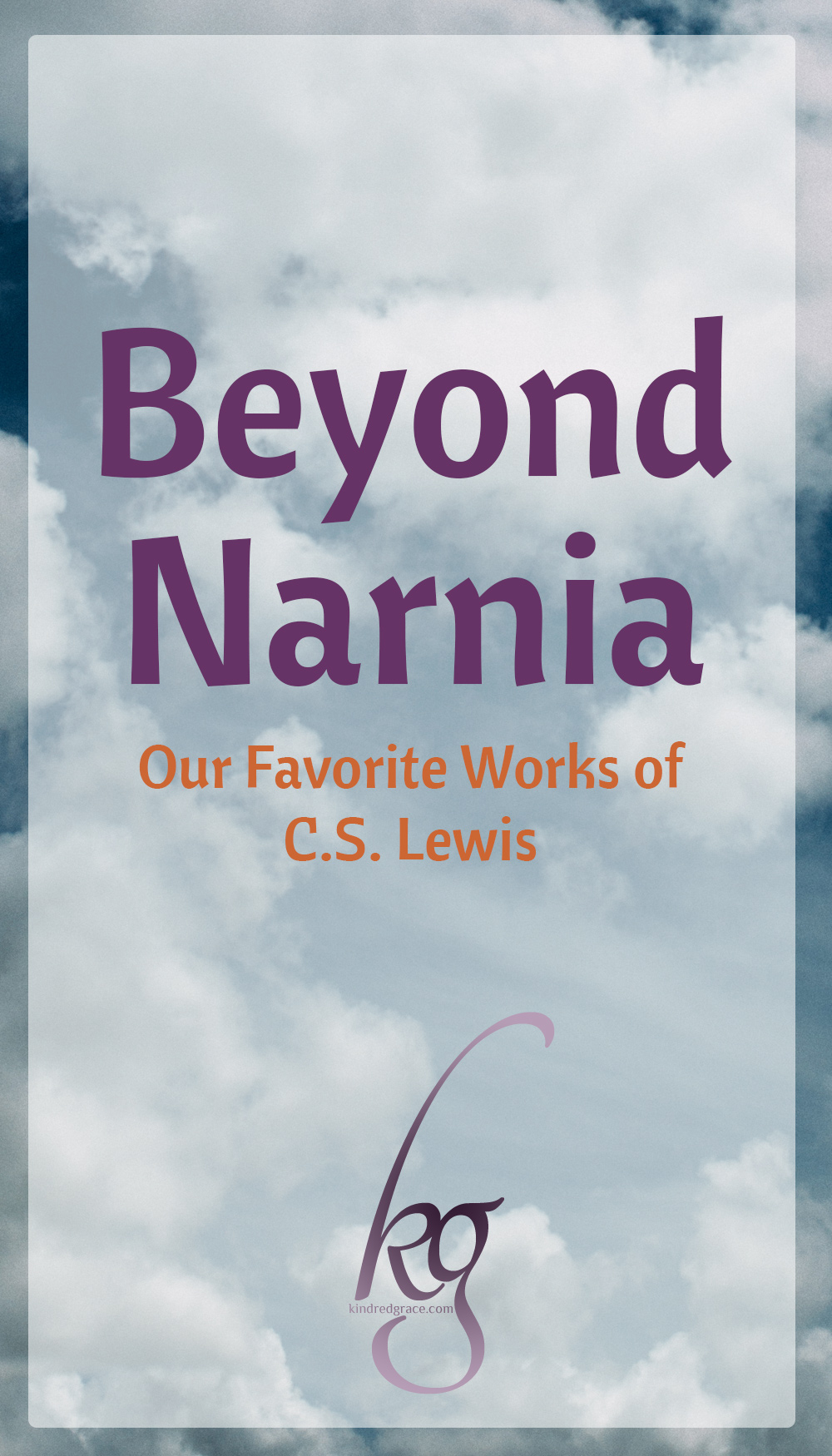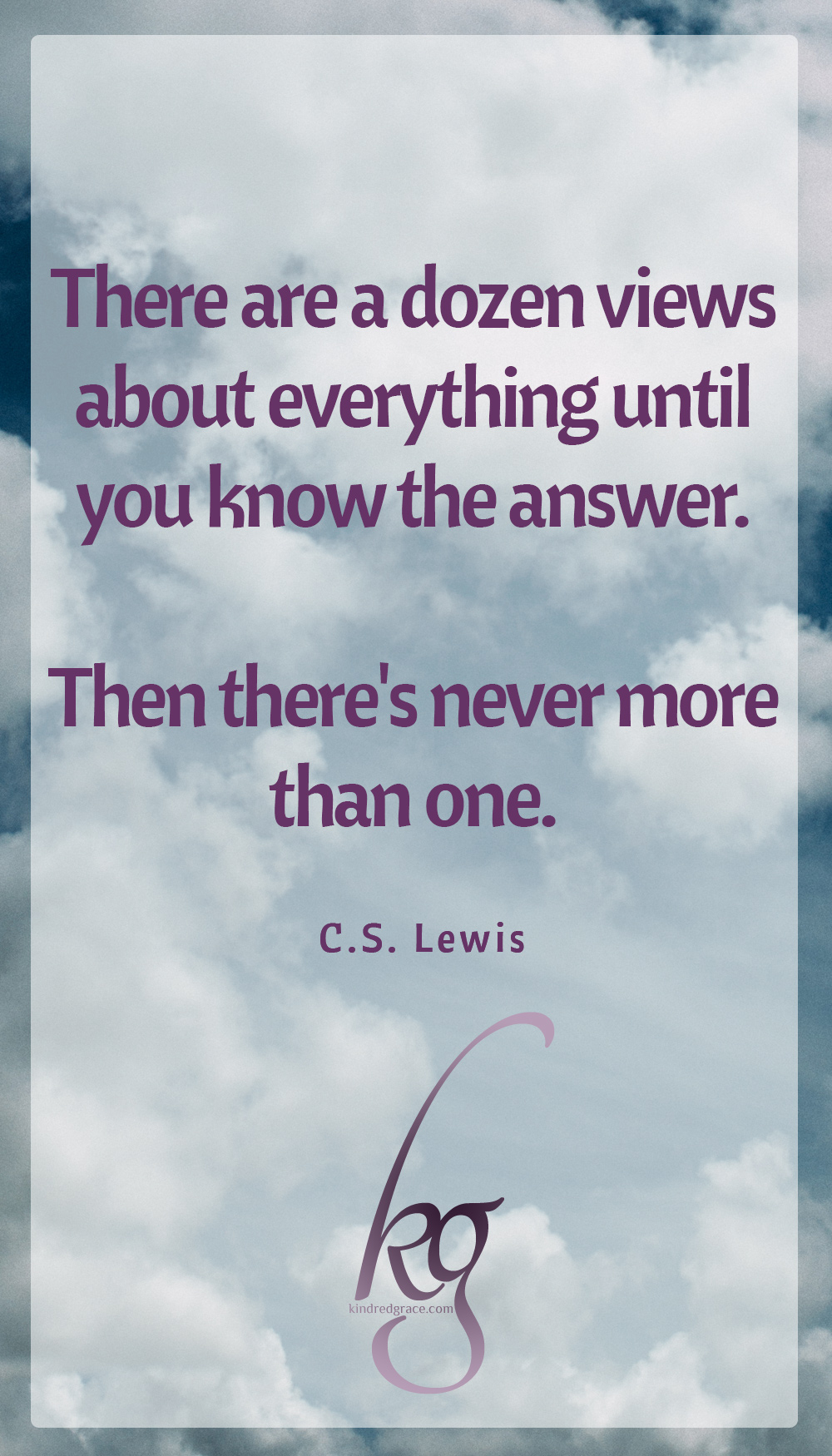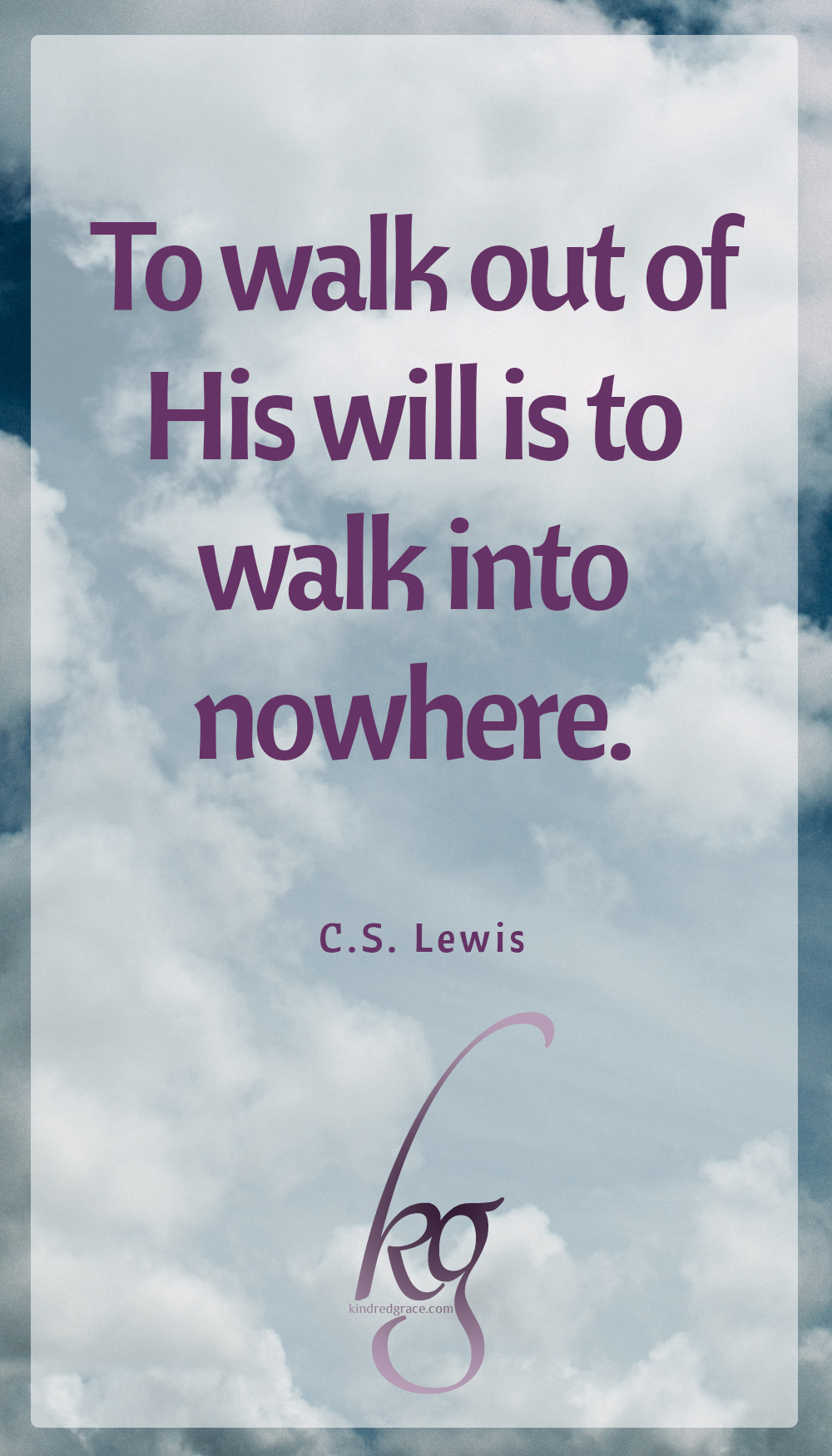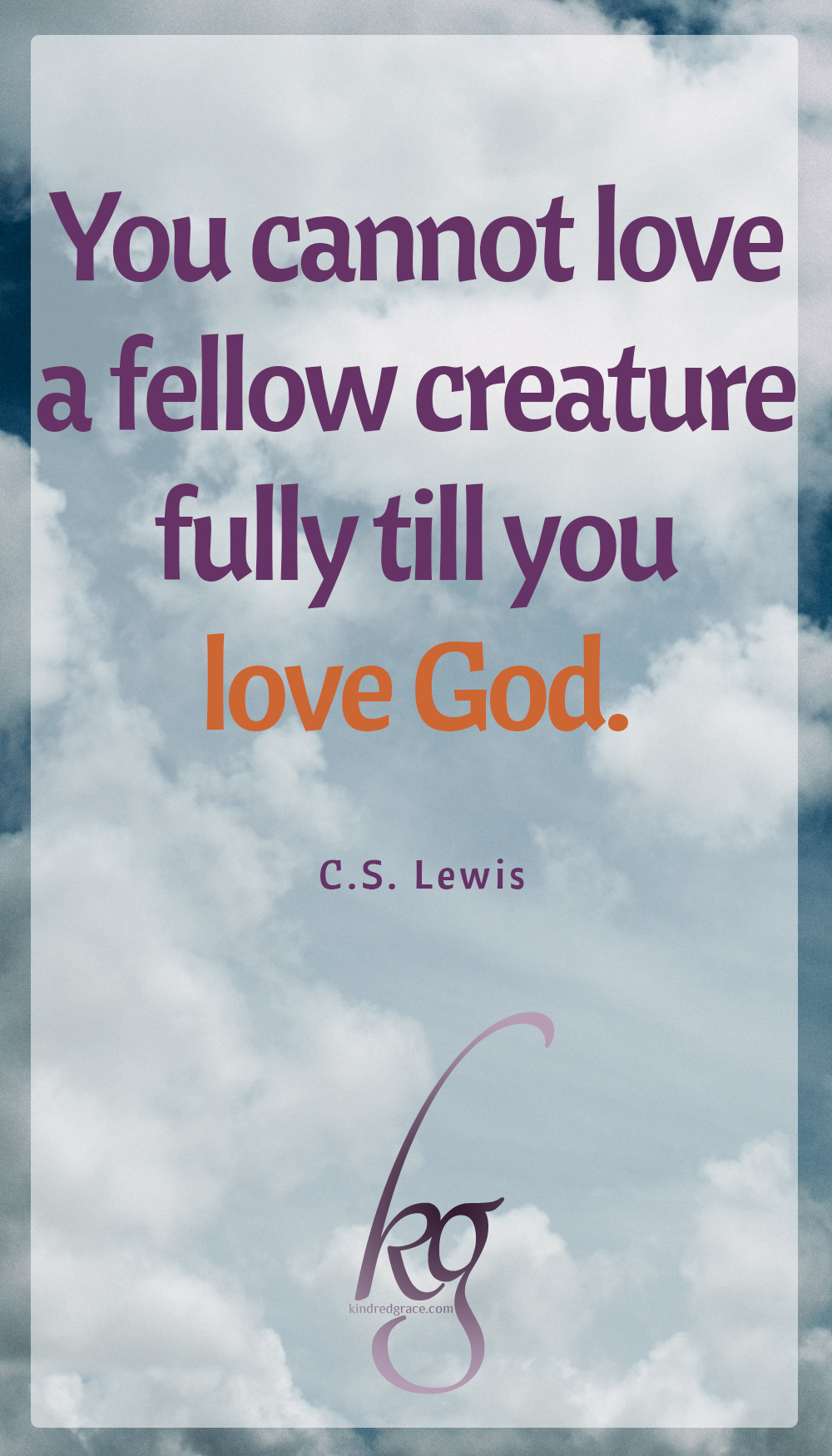Beyond Narnia: Our Favorite Works of C.S. Lewis
Thoughts of talking mice brandishing swords, boys turned into dragons, and the sticky sweet taste of Turkish Delight have filled the imaginative landscape of young and old for decades. I know I’m not the only one who wondered if the magical land of Narnia might exist through one of my closets. Selling over 100 million copies, The Chronicles of Narnia may be C.S. Lewis’ most recognizable work, but by no means do the adventures of four children embody the whole of this prolific author’s influence.
One simple Google search will tell you biographical information about the Belfast-born boy turned British Army officer turned Oxford Don. Dig into his life and you will find a man struggling with the same issues that seem to plague our broken world–depression, loneliness, and the loss of beloved friends and family. One quick look at his bibliography will tell you he was an Atheist turned Theist turned Christian. Despite being a theological giant, his body of work shows a man wrestling with the same doubts and fears that can hang around faith like a gnat.
Lewis wrote more than thirty books, spanning almost every genre of literature. His novels, essays, lectures, and broadcasts made him one of the most influential writers/thinkers of the Twentieth Century. I have endeavored to highlight some of his lesser known work (if any of Lewis’ work could be called lesser known) in the following reviews.
The Pilgrim’s Regress (1933)
In the first book written after his conversion, Lewis creates an allegorical and semi-autobiographical account of one man’s quest for truth. Patterned after Bunyan’s Pilgrim’s Progress, Lewis chronicles John’s journey of faith, allegorizing the many false lures that disguise themselves as the true objects of joy, driving travelers off course.
Lewis recasts Bunyan’s story with the politics, philosophy and aesthetic principles of the early twentieth century. John meets people who represent the hypocrisy of the modern Christian church, communism, fascism, and various other philosophical and artistic movements that distract him from his fundamental goal – to reach the ultimate joy.
As in The Screwtape Letters, Lewis has the ability to write about common Christian themes with a unique angle that causes deep thought in readers.
“Be sure it is not for nothing that the Landlord has knit our hearts so closely to time and place – to one friend rather than another and one shire more than all the land.” (C.S. Lewis in The Pilgrim’s Regress)
The Problem of Pain (1940)
“The only purpose of this book is to solve the intellectual problem raised by suffering,” Lewis puts forth at the beginning of The Problem of Pain, “for the far higher task of teaching fortitude and patience I was never fool enough to suppose myself qualified.”
In this book, Lewis writes outside the confines of pain as a feeling because he is not yet in the midst of suffering himself (as opposed to A Grief Observed which he wrote after his wife died). He approaches pain more intellectually than emotionally, taking on the role of an apologist tackling that ever-present question: Why would an all-loving, all-knowing God allow people to experience pain and suffering? As with much of Lewis’ writing, his conclusions circle back to love – humanity’s for God and God’s love for humanity.
“When pain is to be born, a little courage helps more than much knowledge, a little human sympathy more than much courage, and the least tincture of the love of God more than all.” (C.S. Lewis in The Problem of Pain)
The Screwtape Letters (1942)
Wormwood needs help. He needs help getting his human charge on Earth to stumble and turn away from God. Who better to help than his more experienced uncle, Screwtape. The Screwtape Letters is a compilation of the letters Screwtape sends his nephew full of advice on how devils like themselves, can best tempt their assignments.
It may take a couple chapters to adjust to the backward perspective, but Lewis succeeds at portraying the temptations humans encounter and gives insight into the human condition with his religious satire.
“Courage is not simply one of the virtues but the form of every virtue at the testing point, which means at the point of highest reality. ”
(C.S. Lewis in The Screwtape Letters)
The Inner Ring (1944)
Lewis opens the Memorial Lecture at King’s College, University of London in 1944 of London in 1944 by saying, “I am going to issue warnings. Advice and warnings about things which are so perennial that no one calls them ‘current affairs.'” That lecture, entitled The Inner Ring, is eerily applicable decades later.
In a social landscape driven by likes, followers, stories, and stats, Lewis’ warnings about the Siren-like Inner Ring feel current and convicting.
“Of all the passions, the passion for the Inner Ring is most skillful in making a man who is not yet a very bad man do very bad things.” (C.S. Lewis in The Inner Ring)
The Space Trilogy (1938-1945)
In a letter to his biographer, Roger Green, Lewis wrote, “What immediately spurred me to write [The Space Trilogy] was Olaf Stapledon’s Last and First Men and an essay in J.B.S. Haldane’s Possible Worlds, both of which seemed to take the idea of such [space] travel seriously and to have the desperately immoral outlook which I try to pillory in Weston. I like the whole interplanetary ideas as a mythology and simply wished to conquer for my own point of view what has always hitherto been used by the opposite side.”
The Space Trilogy documents the adventures of Dr. Ransom who, in the first book, Out of The Silent Planet, is kidnapped by an evil physicist (the Weston referred to above) and taken to the planet Malacandra (Mars). Ransom escapes his captives and in the subsequent books he is pitted against his own will to save a peace-loving planet (Perelandra) and dark forces who threaten Earth (That Hideous Strength).
Similar to the outcome of The Chronicles of Narnia, Lewis’ Space Trilogy expresses his interest in mythology and fantasy without purposefully involving itself in theology. However, both sets of novels are not untouched by Lewis’ faith. The two series each contain overtly theological elements as they speak to contemporary morals. Where Narnia addresses these rights and wrongs through a more lighthearted, fairy tale approach, The Space Trilogy spreads its message through cosmology, a seemingly more mature and intricate vehicle.
“And I say also this. I do not think the forest would be so bright, nor the water so warm, nor love so sweet, if there were no danger in the lakes.” (C.S. Lewis in Out of the Silent Planet)
Perelandra (1943)
(reviewed by Cheri Gregory)
At the heart of this allegory is a classic fall-and-redemption theme. Initially, the setting, characters, and plot of Perelandra parallel Genesis 1-3. But as the story unfolds, Lewis takes us on an unexpected journey to explore what might have happened, had the first humans not fallen.
Perelandra is a newly-created land, reminiscent of the Garden of Eden right after creation week. Glorious colors, unimaginable tastes, and incredible sights dazzle the senses. Its inhabitants, the King and the Lady, are perfect beings, partners who share dominion over Perelandra, just as Adam and Eve tended the Garden of Eden.
Despite powerful temptations to disobey for the sake of knowledge, independence, and power, neither character succumbs. This is not a redemption story but a salvation story. The Lady and the King are saved from ignorance, which Lewis defines as apathy toward goodness and a first-hand experience of evil.
Through Perelandra, Lewis explores how our craving for control causes us to trade God’s wisdom for a petty sort of “knowledge”: the security of knowing what will happen to us next because we insist on forcing our own destiny. He contrasts humanity’s relentless grasping for illusionary certainty with the abundant joys experienced by those who willingly surrender to God’s loving and eternal wisdom. As the King discovers, there is “no assurance. No fixed land. Always one must throw oneself into the wave” of faith.
“Strengthen the feebler, lighten the darker, love all.” (C.S. Lewis in Perelandra)
The Great Divorce (1945)
Lewis’ belief in a real, actual hell is one element of his work that causes a considerable amount of consternation among modernists, Christian and non-Christian alike. In The Great Divorce, Lewis recounts a fanciful bus ride from hell to heaven, allowing the reader to eavesdrop as the souls of the blessed attempt, mostly unsuccessfully, to convince the souls of the damned to forsake their sin and pride and enter heaven.
For Lewis, hell is not so much a pit that humans are thrown into on account of some heinous, mortal sin, but more of a marsh that humanity slides into one minor indiscretion at a time. Each time a person chooses himself or sin over God and others, he closes another inner door on the life-giving, but also illuminating, light of Christ. He surrenders another piece of his humanity. Humanity literally dehumanizes itself.
“There is but one good; that is God. Everything else is good when it looks to Him and bad when it turns from Him.” (C.S. Lewis in The Great Divorce)
Mere Christianity (1952)
In the middle of World War II, Lewis was invited to give a series of radio broadcasts addressing the central tenets of Christianity to a war-torn Great Britain. Mere Christianity expands those three lectures into book form, creating a classic among Christian apologetics. With precision and heart, Lewis lays out a rational case for the Christian faith that resonates with those on any part of their faith journey.
“True humility is not thinking less of yourself; it is thinking of yourself less.” (C.S. Lewis in Mere Christianity)
Surprised by Joy (1955)
Youth is a formative time in people’s lives. In childhood, you become freshly acquainted with the customs of an inner nucleus of friends and family and with the world at large. During adolescence, the pressures of those two spheres of influence tear at the psyche, battling for priority and preference. No matter which party is victorious, people emerge with a new perspective, ideally more willing to pursue life as an individual.
C.S. Lewis was no exception. His childhood, boyhood, and adolescence were a time of molding and reshaping; the process of growing up deeply affecting his journey of faith. The experiences of Lewis’ youth laid the foundation on which his faith was built, destroyed, and reconstructed. More memoir than autobiography, in Surprised by Joy Lewis’ recounts his slow move towards God from his childhood in Belfast to his studies at Oxford.
“All Joy reminds. It is never a possession, always a desire for something longer ago or further away or still ‘about to be’.” (C.S. Lewis in Surprised by Joy)
Till We Have Faces: A Myth Retold (1956)
Lewis’ last novel is a retelling of the myth of Cupid and Psyche. The original myth is the love story between Cupid (Eros) and Psyche (Soul). Till We Have Faces takes the themes of desire and the divine and recasts them from the perspective of Orual, Psyche’s disfigured and embittered sister.
Orual is now the one on a quest for salvation through love. A battle rages within her between an evil, consuming love for Psyche her half sister and a selfless, righteous love. Orual’s journey to find love is hindered by her own masked perspective. Her vision is clouded not only by the veil that covers her unattractive physical appearance but also by the self-deception that hides her ugly mind.
As Orual recounts her tale, she convinces herself that she is not jealous of Psyche. But Orual is obsessive about her. Her love for Psyche leads to ruin. She begins the book in bitter lament at what the gods have done, not at what, in reality, she has caused herself.
Brushing up on the original myth will make this read even more interesting.
“Child, to say the very thing you really mean, the whole of it, nothing more or less or other than what you really mean; that’s the whole art and joy of words.” (C.S. Lewis in Till We Have Faces)
Reflections on the Psalms (1958)
“A man can’t always be defending the truth;” Lewis says in the introduction of Reflections on the Psalms, “there must be a time to feed on it.” Reflections is not an apologetic work but one written student to student as Lewis shares observations about the form and meaning of certain Psalms. He indulges in a brief teaching moment, driving home the importance of reading Psalms as the literary form they are – poetry – but the rest of the book is filled with the musings of a regular man wanting to immerse himself in the poems found in Scripture.
“Fully to enjoy is to glorify. In commanding us to glorify Him, God is inviting us to enjoy Him.” (C.S. Lewis in Reflections on the Psalms)
The Four Loves (1960)
Philosophies about love are almost as varied as modern day expressions of the same sentiment. In The Four Loves, Lewis examines the four forms of human love – affection, friendship, Eros, and charity. He transforms commonly held ideas about the origin of love, the duality of love, and the concept of Eros (passionate love) to demonstrate different characteristics of God found in Christian theology.
This is an especially interesting read alongside Plato’s Symposium, in which love is examined through a series of speeches given by seven different men at what was essentially a drinking party. Don’t let the Greek philosopher’s name intimidate you. The book is very slim and easy to read but gives a context to the ideas Lewis is pushing up against in The Four Loves.
“God, who needs nothing, loves into existence wholly superfluous creatures in order that He may love and perfect them.” (C.S. Lewis in The Four Loves)
A Grief Observed (1961)
After Lewis’ wife, Joy, dies his belief in God’s love was shaken to near breaking point. The distanced perspective laid out in The Problem Of Pain became instantly close to his heart causing the realization that “you never know how much you really believe anything until its truth or falsehood becomes a matter of life and death to you…Only a real risk tests the reality of a belief.”
God’s incomprehensible and separate nature from humanity is the basis of Lewis’ comfort in A Grief Observed. At the beginning of his grief he fears not that he will cease to believe in God, but that he will come “to believe such dreadful things about Him,” that he will gain an understanding that God is not really love. By the end of A Grief Observed, Lewis rests in the knowledge that gaining understanding about the ways of God is impossible.
“This is one of the miracles of love: It gives a power of seeing through its own enchantments and yet not being disenchanted.”
(C.S. Lewis in A Grief Observed)
Do you have a favorite book by C.S. Lewis? We’d love to hear how Lewis’ work has been influential in your life.
(Thanks to Cheri Gregory for her guest review of Perelandra.)
Photography: JenniMarie Photography






I love the Space Trilogy (Out Of The Silent Planet, Perelandra/Voyage To Venus, and That Hideous Strength). The wardrobe scene in That Hideous Strength kind of makes up for the bit in The Last Battle, where it’s suggested that Susan’s interest in clothes is one of the things that cuts her off from Narnia. Jane (the heroine), Camilla, Mother Dimble and Ivy all choose out amazing robes for each other, with the choices made for each woman by her friends revealing her true nature. It would be a great scene to read with girlfriends before a day out clothes shopping!
Now I want to go back and read that scene, Megan!
I got the CS Lewis box set for Christmas one year but so far have only read The Great Divorce…and of course, my husband convinced me to read his all time favorite- The Lion The Witch and the Wardrobe a couple of weeks ago. Thanks Emily–now I’m excited to read more!
The Great Divorce is actually one of my favorite CS Lewis books! What are you going to read next?
I’m all fired up! I need to read much, much more by Lewis!
There’s so much to choose from! 🙂
My favourites are and always shall be the Chronicles of Narnia. Between the books as a child, the Focus on the Family Radio Theater, and the books as an adult, these are some of the most wisdom-packed, engaging, lovely stories ever. =D
I didn’t realize Focus on the Family did a radio theater version of the Chronicles. I will have to look that up.
Oh my goodness, we love the Focus on the Family Radio Theater of Narnia! They’ve done each book individually and done them so well. We listen to them over and over and over.
Oh, this is making me want to read more C.S. Lewis! I read The Space Trilogy at my boyfriend’s prompting long ago (Lord of the Rings, too, was read because he said I should). I’ve read bits and pieces of The Four Loves and all of Mere Christianity, but it’s definitely time I read more. Thank you for this whetting of our literary appetites!
I’m curious if you have seen any of the movies about Lewis (I know there are two called “Shadowlands”, but I’m sure there could be more) and, as a Lewis scholar, what your thoughts are on them?
Writing these reviews made me want to re-read more Lewis 🙂
You know, I’ve heard of Shadowlands but have never watched it. When I do, I will report back.
Oh my goodness. I love the version with Anthony Hopkins–finally bought it for my husband last Christmas, in fact. I have heard the more recent one isn’t as good, but I haven’t seen it. And I’m not sure how it compares to fact. But it’s a beautiful, inspiring, tear-jerking movie.
I also highly recommend The Four Loves. I had been starting to wonder how it could be that I love my family, love my music teachers, love my God, and expect to someday love a husband, but feel somewhat different about each of these things. Breaking it into four types of love made a lot of sense and I greatly enjoyed the book.
As a side note one of my favorite things in the book is when C.S. Lewis talks about getting closer to God by “nearness in likeness” and “nearness by approach”. I always love it when he uses imagery! He was such a profound thinker!
Love, Janna
Yes, I feel like The Four Loves is such a good reference as we transition into new seasons and new relationships. I probably need to read it again, soon.
C.S. Lewis was definitely a master of imagery!
I’ve read several of Lewis’ books, and have always been fairly familiar with him, but after recently reading The Space Trilogy for the first time since I was a freshman, I was utterly blown away, and having been whizzing through every book of his we own.
The Four Loves sounds like a book that could say a lot to me. I’m afraid I’m one of those girls who has a tendency to fall in love with love.
—Clare
I’m not a necessarily a sci-fi fan, but I also was totally blown away by The Space Trilogy.